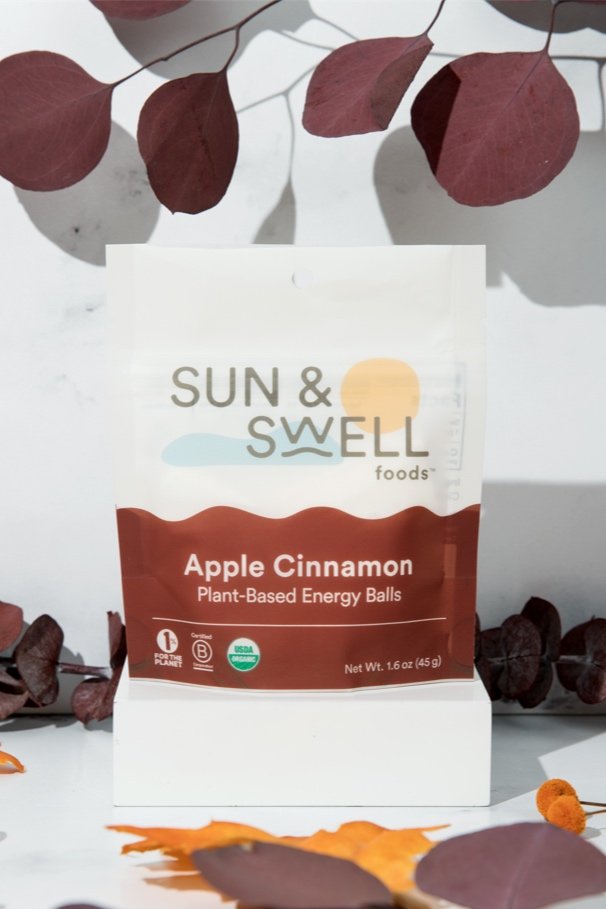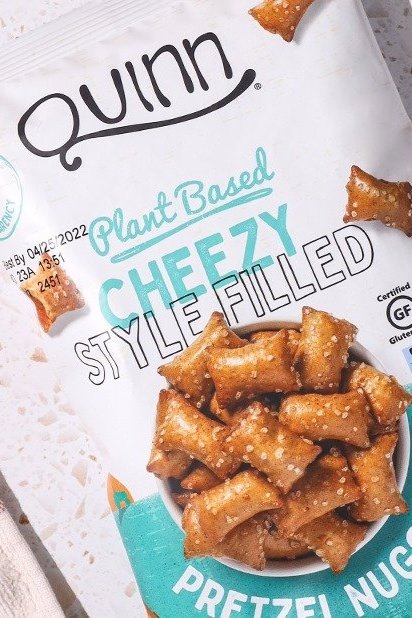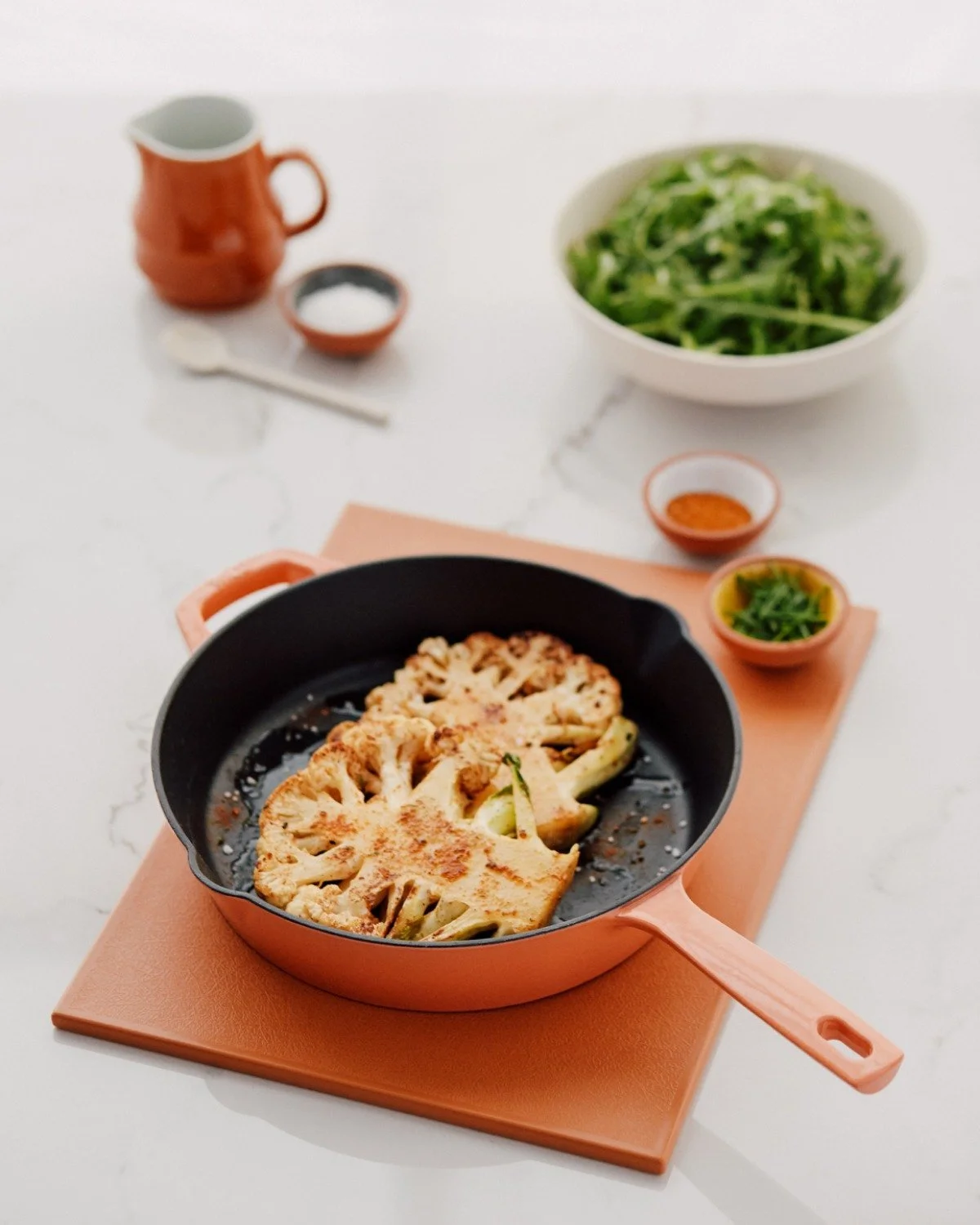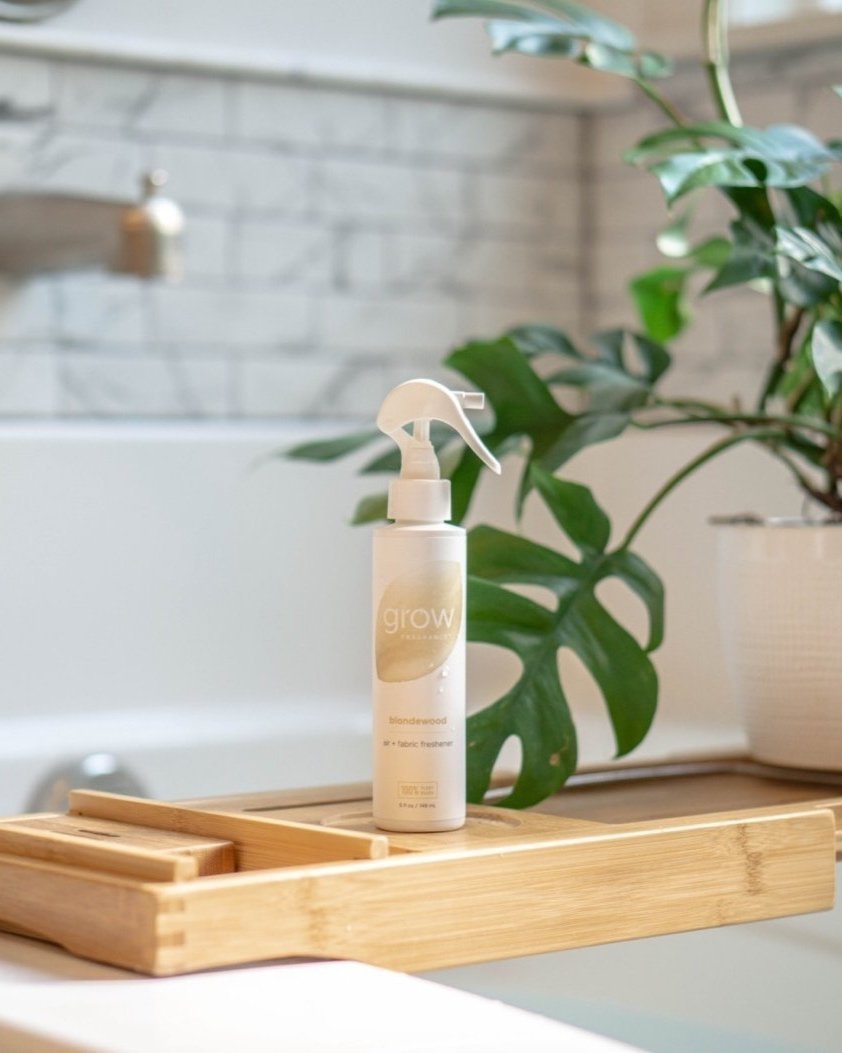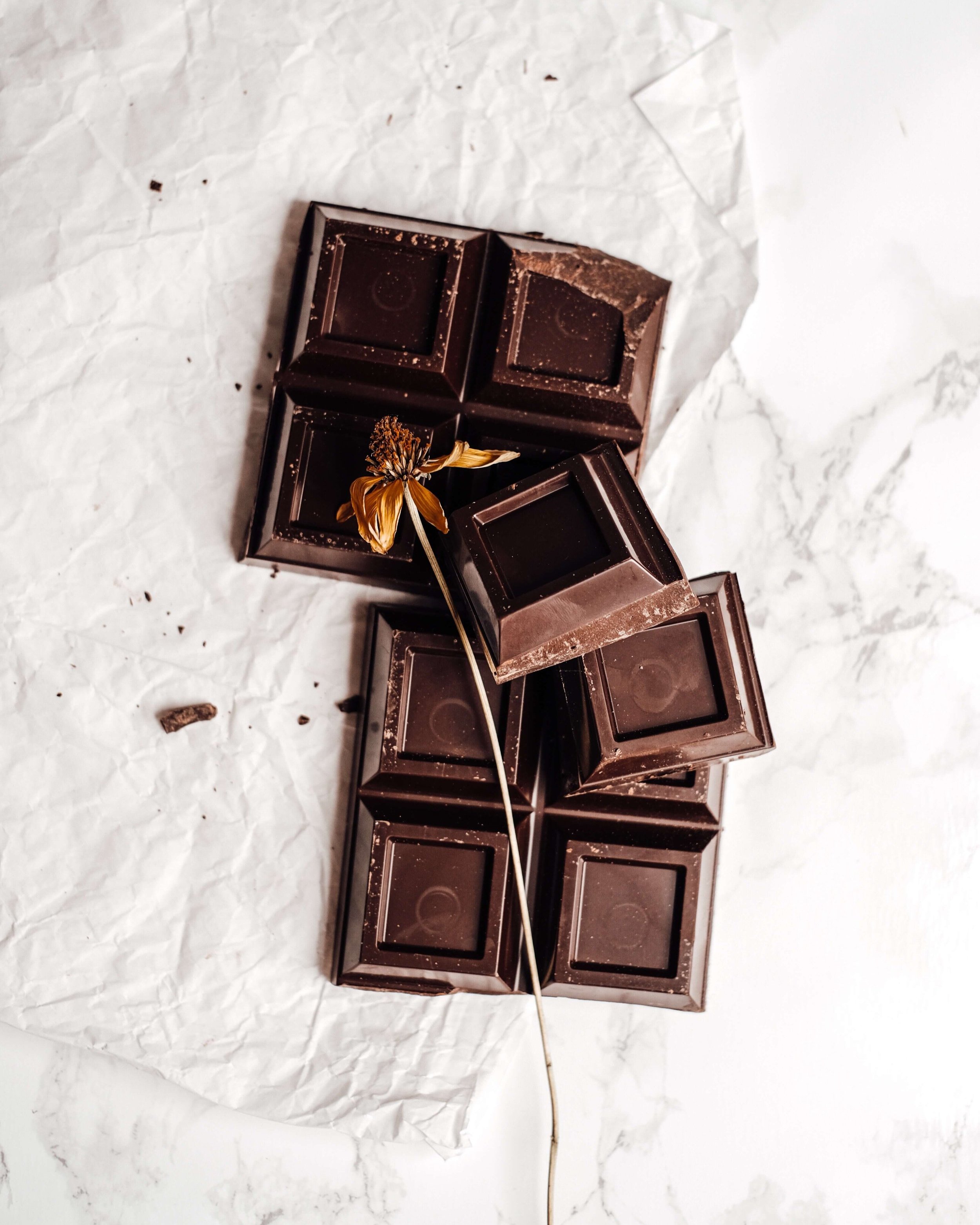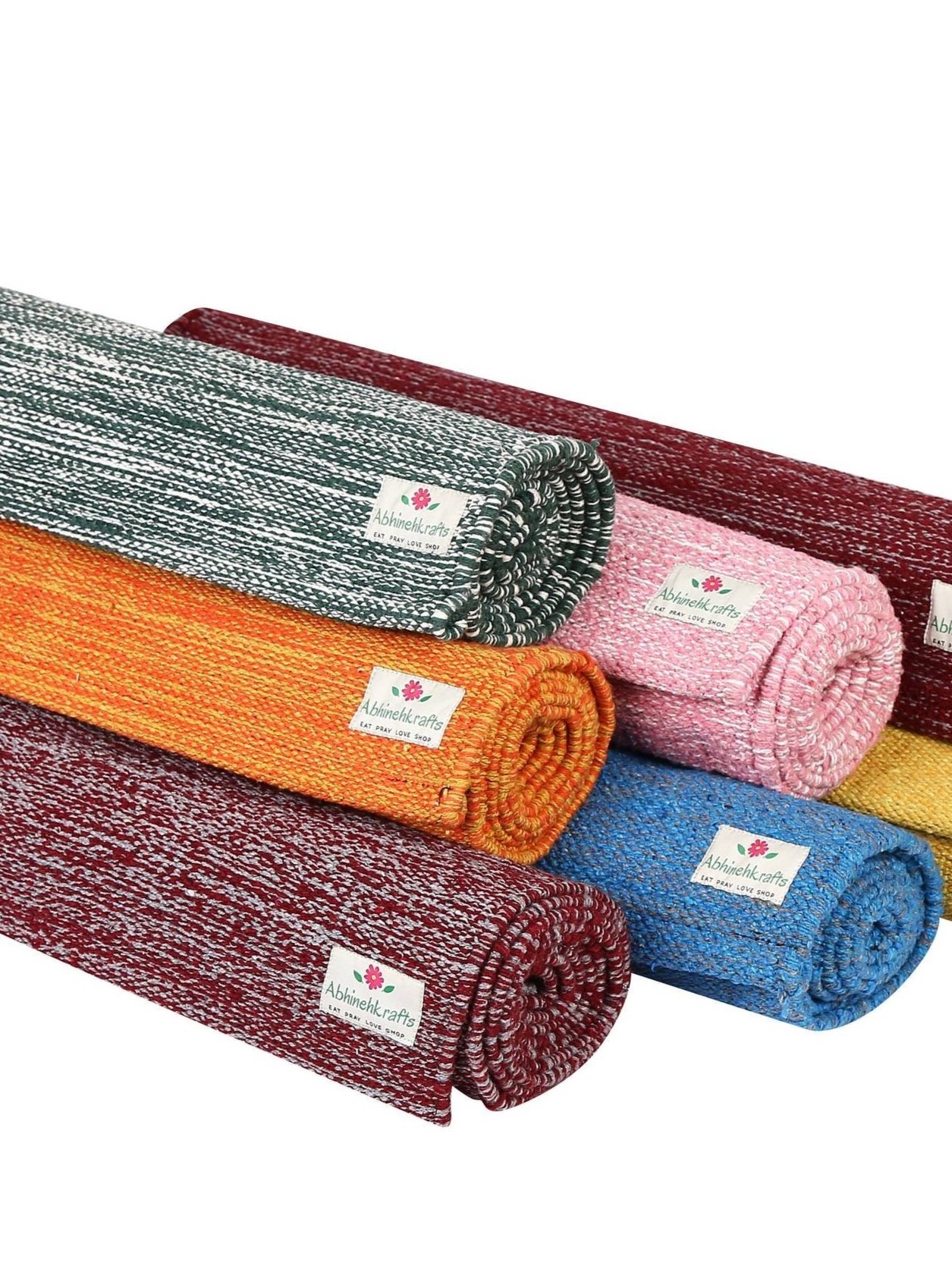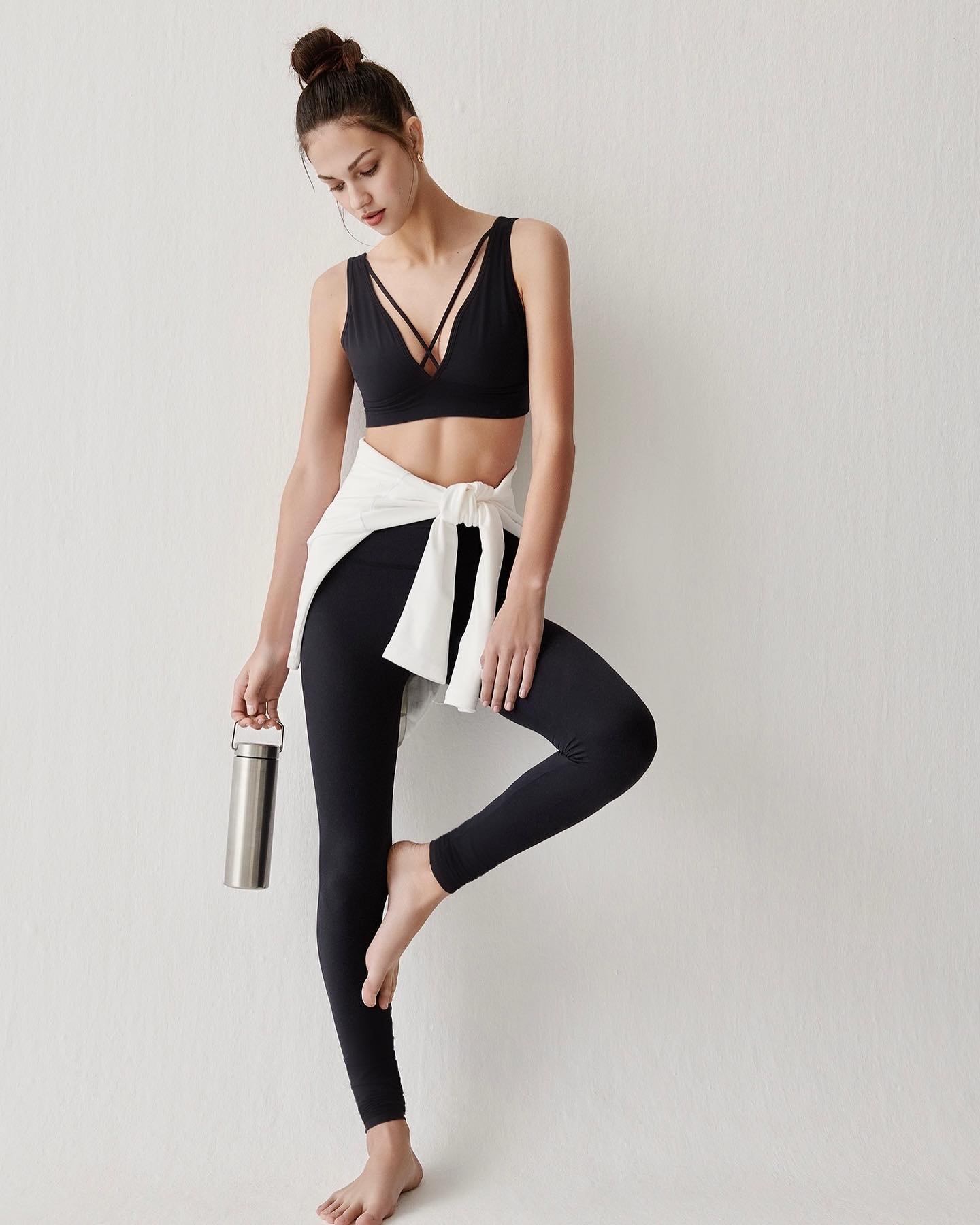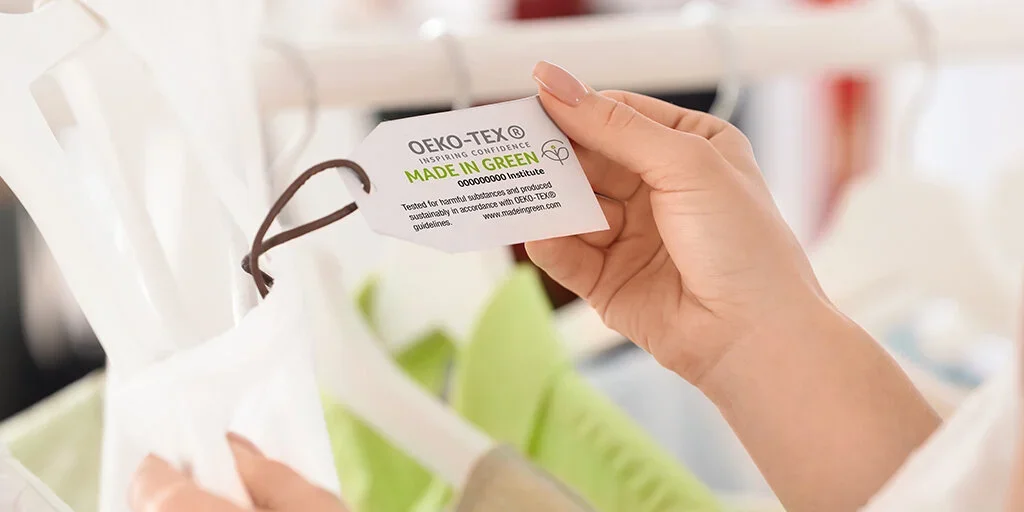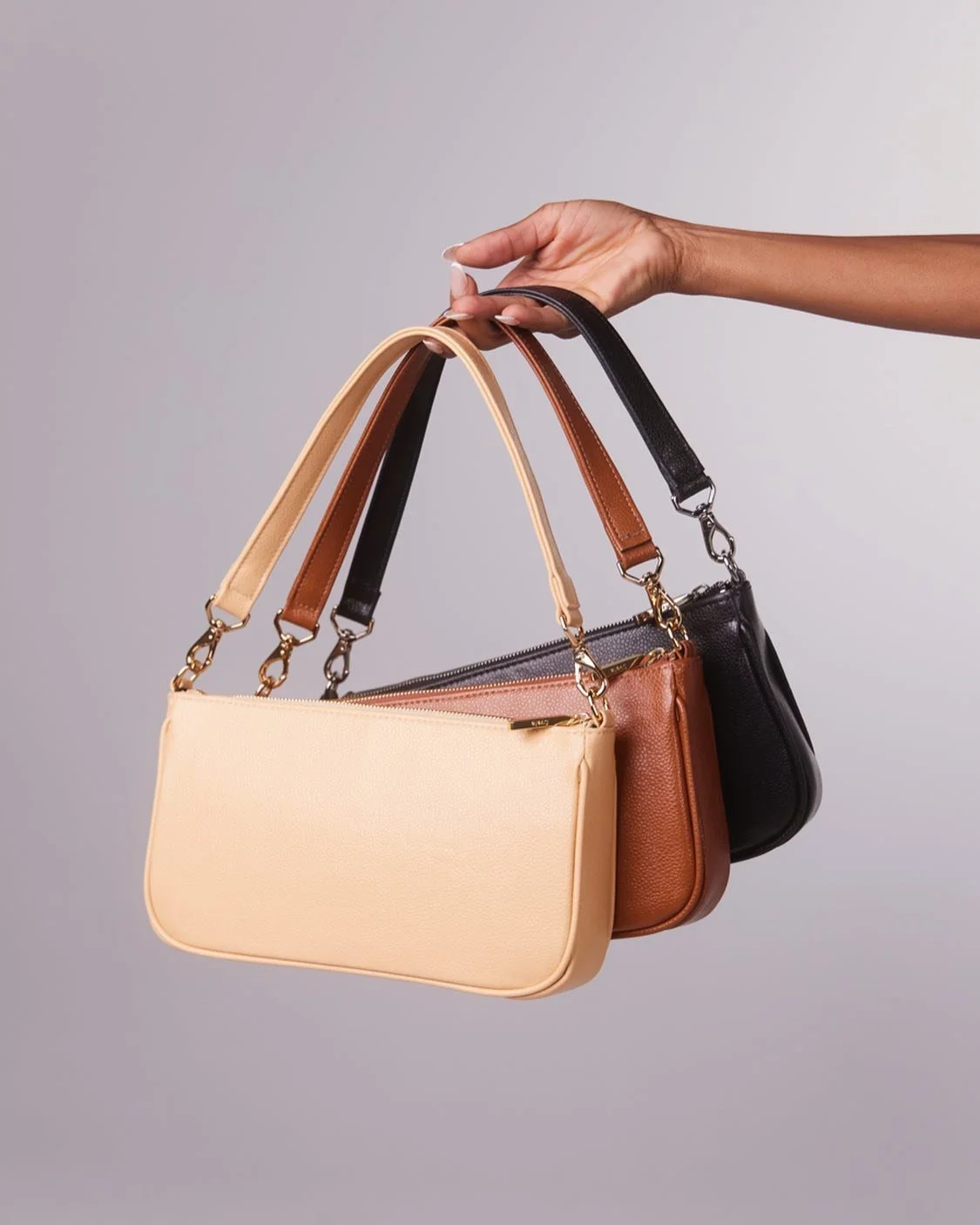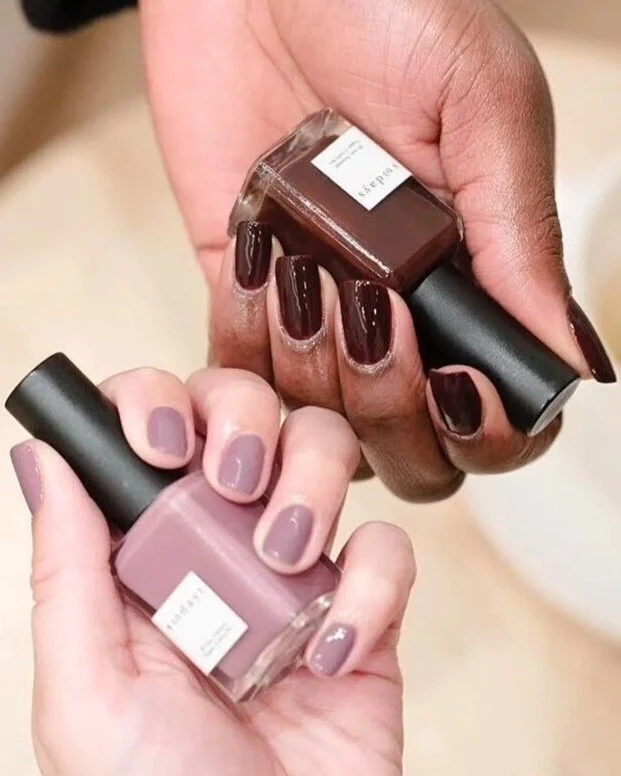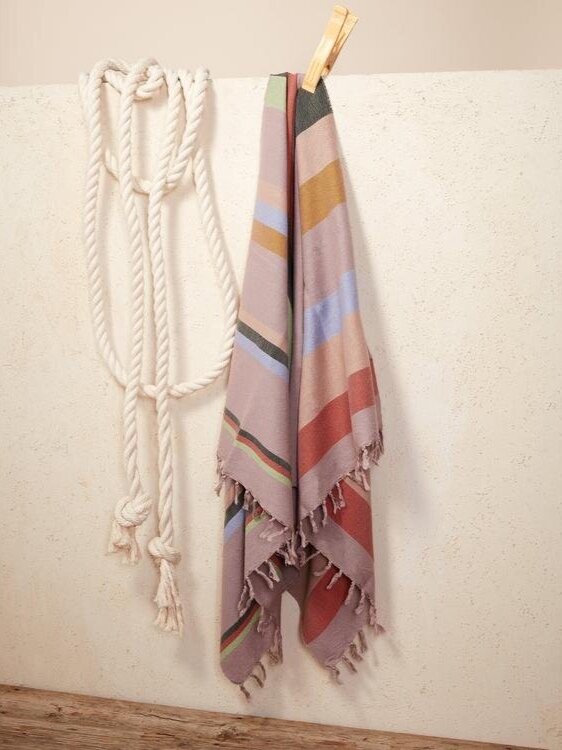Image: Sun & Swell
Disclosure: Some of the links below are affiliated; we may earn a small commission if you click through and make a purchase. We only ever add brands & products we truly believe in. Thank you for supporting the brands who are making the world a better place!
The Best Sustainable Snack Foods For You to Try
Some people are “meh” about snacks, others are snack aficionados, and I happen to fall into the latter category. As I became more and more conscious of my consumer habits throughout my sustainability journey, however, I felt like I had to leave my love of snacking in the past; the majority of supermarket snacks are wrapped in difficult (if not impossible) to recycle plastic and most seem to have ingredient lists that go on for *way* too long. Of course, there’s the option to make your own low-waste snacks at home - like cucumber with homemade hummus - but sometimes you really just want a snack that’s easy to grab.
These snack brands are here to save the day with environmentally conscious products that put people and the planet first. Whether you’re craving sweet or salty or looking for a supermarket alternative to do all your shopping, this list can help you find what you’re looking for!
So What Makes a Snack Sustainable?
A sustainable snack goes beyond just having packaging that can be responsibly disposed of (although that’s a great start!). If a candy bar comes in a compostable wrapper, but the farmers harvesting cacao seeds are being treated unfairly, that candy bar still has a lot of work to do. Putting people and the planet as priorities ensure that the product is sustainably-minded.
How Do I Know The Ingredients Are Sustainable?
Noticing labels and certifications like Fair Trade, Non-GMO, Organic, and Rain Forest Alliance are great places to start. This PDF is a great source for understanding different labels.
Companies that post sustainability reports and/or offer tons of transparent information about how they operate, where their ingredients come from, and how their products are made are paving the way for our future. The more we know, the more we can get behind a brand and support the work they’re doing!
Ok, So What Packaging Should I Look For?
To start, keep an eye out for backyard compostable packaging, post-consumer recycled materials like plastic or glass, or a company using a circular economy, like Loop, are great ways to narrow down the masses.
Backyard compostable packaging, specifically, means that the wrapping will decompose in a home compost pile; the other side of that coin is commercial compostable packaging, which *won’t* decompose in your backyard. For that option, you’ll actually need to send the packaging to a specific facility, or to Terracycle.
While the majority of materials are not recycled in America, that doesn’t mean we should totally give up on the industry! If companies buy post-consumer recycled materials, that increases the demand for that material, which means that more effort goes toward actually recycling and reusing instead of that material being overlooked and sent to landfills. Post-consumer plastic only can be re-used a few times, but glass can be reused almost inifintley! Our purchasing power can cause a ripple effect that can shift the recycling industry.
If you’re living in an area that offers a circular economy, like Loop, then hop on that train my friend! This type of packaging uses a kind of “milk-man” mentality, with local deliveries and pick-ups of packaging that is industrially washed and then reused. This option is a lot more limited than the other two, but is a totally cool system for the future!
So without further ado, let’s eat!
Our Favorite Sustainable Snack Brands:
1) Askinosie
Askinosie Chocolate is a single origin craft chocolate company based in Missouri, sourcing all of their beans directly from the growers and ensuring fair wages.
They describe their values as being “fairness, sustainability, minimal environmental impact, and community enhancement”, and they back up this promise with a Transparency Report which details the “farm gate” price they’ve paid their farmers for their beans over the first decade of their business.
For their snacks they have delicious Malt Balls, Cocoa Nibs & Smore Bites.
2) Alter Eco Chocolate
If you have a sweet tooth, Alter Eco is here for you! This chocolate company offers chocolate bars, chocolate truffles, chocolate nut butter bombs, and quinoa. Y’know, for balance.
In addition to having sweet products, they have some pretty sweet sustainable certifications, too! Alter Eco has been B-corp certified for over a decade and their products are Fair-trade, Gluten-free, and Organic certified.
Their company is also climate neutral, and each yummy treat is packaged in backyard compostable and/or recyclable materials.
3) Sun and Swell Foods
Each Sun and Swell product uses organic, vegan ingredients without any added sugars.
They have cookies, pantry staples, dried fruits, nuts, and other home goods available in their online shop.
75% of their products are packaging in compostable materials, and for the other 25%, Sun & Swell offers a send back program to responsibly dispose of the material! All their products are shipped carbon-neutral in boxes that can be composted (even the tape!) Sun and Swell is also a 1% For The Planet partner and is B-corp certified.
4) Thrive Market
Thrive Market is an online supermarket that delivers a wide range of products (over 2,000+ organic!) to your door with carbon-neutral shipping.
For $5/month, their company cuts out the “middleman” of retailers, and the markups that ensue.
For each membership paid, Thrive donates a membership to someone in need, with a goal to raise $10 million in healthy groceries by 2025.
They carry pantry staples, sustainably sourced seafood, and meat, non-toxic cleaning supplies, and a TON of snacks.
Thrive is B-corp certified, and will be Zero Waste Certified by 2022, plastic neutral by 2023, and is working toward being carbon negative by 2025 - talk about setting goals! Since 2015, Thrive’s warehouses have diverted 90% of waste from landfills to recycling, composting, or re-use facilities.
5) Hive
Hive is similar to Thrive in more than just name - they are also a sustainable grocery alternative.
Hive has five core values (their Hive Fives, love a pun). 1. Making sure ingredients are traceable and that sound practices are being used for harvesting. 2. Using recyclable packaging 3. Ensuring a low carbon footprint 4. Being dedicated to the social good 5. Making rave-worthy snacks, because sustainability doesn’t sacrifice taste - it enhances it!
Their website is very transparent, with tons of information about their company in the FAQ and even more in their blog.
Hive is carbon-neutral and 99% of packaging has a way to be responsibly disposed of, whether by composting, through TerraCycle, or recycling. In fact, they have a whole landing page dedicated to giving you the low-down on recycling their products, which is super helpful to the consumer!
6) Misfits Market
Did you know, according to the USDA, “food waste is estimated at between 30-40 percent of the food supply” in the US alone, every year? Misfits Market is working to combat that by partnering with farms across the country and putting “ugly” produce that doesn’t fit grocery store standards, to use. Although they started out with the mission to reduce produce waste (and they have!), as they have grown they started saving more than just produce from landfills!
They take in pantry items that are surplus, or have out-of-date packaging, or are short-dated (meaning their “best by” sticker is within the next 6 weeks).
Cha-ching on discounted snacks that help cut down on food waste! Misfits Market currently delivers to nearly all 50 states, and is adding new delivery zones and zip codes frequently!
7) This Saves Lives
This Saves Lives was created in 2013 by Kristen Bell, Ryan Devlin, Todd Grinnell, and Ravi Patel to bring aid to people around the world suffering from severe acute malnutrition, a completely curable affliction. Each purchase acts as a one-for-one donation of a package of Plumpy’Nut, which is a Ready-To-Use Therapeutic Food (RUTF), to someone suffering from severe acute malnutrition. This Bar Saves Lives partners with organizations like Action Against Hunger to distribute nutrition to those in need.
Since their founding, over 28 million packets of RUTF have been donated, saving over 184,000 lives.
In addition to doing good, these bars taste good, too! They are Gluten-free, Non-GMO certified, and kosher. Made with natural and vegan/vegetarian-friendly ingredients, they’re a delicious way to help others.
8) Barnana
We love a brand that upcycles, and Barnana is all about it! Founded in 2012 to lessen banana waste in Latin America, this B-corp company sources bananas and plantains from small organic farms throughout the Amazon that typically are too remote or have too small of an operation (think, family-owned farms) to get their fruit to market. Barnana partners directly with these smaller farms and offers them steady incomes to rely on. These farms use regenerative farming efforts, which help carbon sequestration as well as encourage healthy soil. Barnana snacks are created using bananas deemed imperfect for mass markets or are surplus.
9) Rind Dried Fruit
Fighting food waste is a trend we’re happy to hop on. In 2020, Rind diverted 120,000+ pounds of food waste from the landfills into bellies!
They’re all about eating the peels, which are great sources of vitamins, minerals, antioxidants, fiber - you name it!
Their program Love is Rind donates their healthy, nutrient-packed snacks to local school partners on the weekend, since that’s when access to food is harder for children struggling with hunger. More than 13,700 bags have been donated to schools across the country since the program’s foundation.
10) Quinn Snacks
Quinn Snacks offers flavored popcorn and pretzels, so your movie night is ready to go!
Their “farm to bag” transparency puts a real emphasis on how they make their products and where they source ingredients from, showing a list of where each of their suppliers is, what they produce, and an overview of what they do.
They partner with farms that are using regenerative agriculture practicies. What is that, you ask? “Regenerative agriculture farming practices are proven to sequester Earth warming carbon from the atmosphere. These practices are rooted in improving the health of our soil.
Regenerative agriculture not only pulls carbon out of the atmosphere and puts it back into the soil where plants thrive on it, but it also improves crop yields, naturally reduces pests, and increases biodiversity. Pretty cool, huh?” This method is better for farmers, better for the planet, and better for consumers. Remember earlier when I was talking about putting people and the planet first :)
11) Regrained
This company is making beer sustainable! Regrained takes waste created from making beer and makes it into crackers - Bazinga!
Two college guys who took up microbrewing as a hobby were using their “waste” grain to bake bread, to break even on their brewing business. But then they realize the potential.
In addition to the cool method of reducing waste, these crackers are also packed with nutrition. Since the beer-making process eats up all the sugars in wheat, the stuff they’re using to make crackers is 0-sugar and packed with plant protein, prebiotic fibers, and micronutrients. Who knew?!
Their blog is super transparent and talks all about upcycling in your life, and Regrained’s journey to incorporate compostable packing.
12) Nature’s Path
This family-owned business was founded in 1985 and was an innovative business in the 80s, offering organic granolas before they were popularized. Since then, they have achieved a Zero Waste certification at each of their manufacturing sites and redirect their wastewater to a biodigester to create energy. Nature’s Path donates at least $2 million each year to different organizations, and it working toward climate neutrality. Their granolas, oatmeals, chips, and more are organically grown and will be sold in compostable packaging by 2025. Nature’s Path partners with Loop, a circular shopping platform that deals with local deliveries and returns.
Bonus points: they have a link to their sustainability report on their website.
13) One Degree Organic Foods
One Degree means business when it comes to transparency.
Consumers are able to trace every single ingredient in their products, from cereals to granolas to loaves of bread.
Slice me off some of that! Each product has a 6 digit code you can type into their site and trace - it acts as a kind of virtual, larger-scale farmer’s market where you can get to know who grew the product, where it’s coming from, and what’s in it.
One Degree partners with small-scale organic farmers, and even offers Gluten-free snacks!
About the Author
Paige Annelayne is a freelance writer and digital media specialist currently based in Alabama, who loves to cook, learn about intersectional sustainability, and read a lot of books. Her cat, Gnocchi, her plants, and a good cup of matcha bring her joy. You can connect with Paige on Instagram @vitality.blog and at www.vtltyblog.com
MAKE SURE TO PIN THE PHOTO BELOW TO SAVE THIS POST FOR LATER!
WANT MORE SUSTAINABLE BRANDS? VISIT OUR BRAND DIRECTORY!
Our Brand Directory is home to hundreds of sustainable brands, from makeup to cleaning supplies, from underwear to shoes. We have broken everything down by category for easy shopping, along with discount codes unique to Sustainably Chic viewers.




